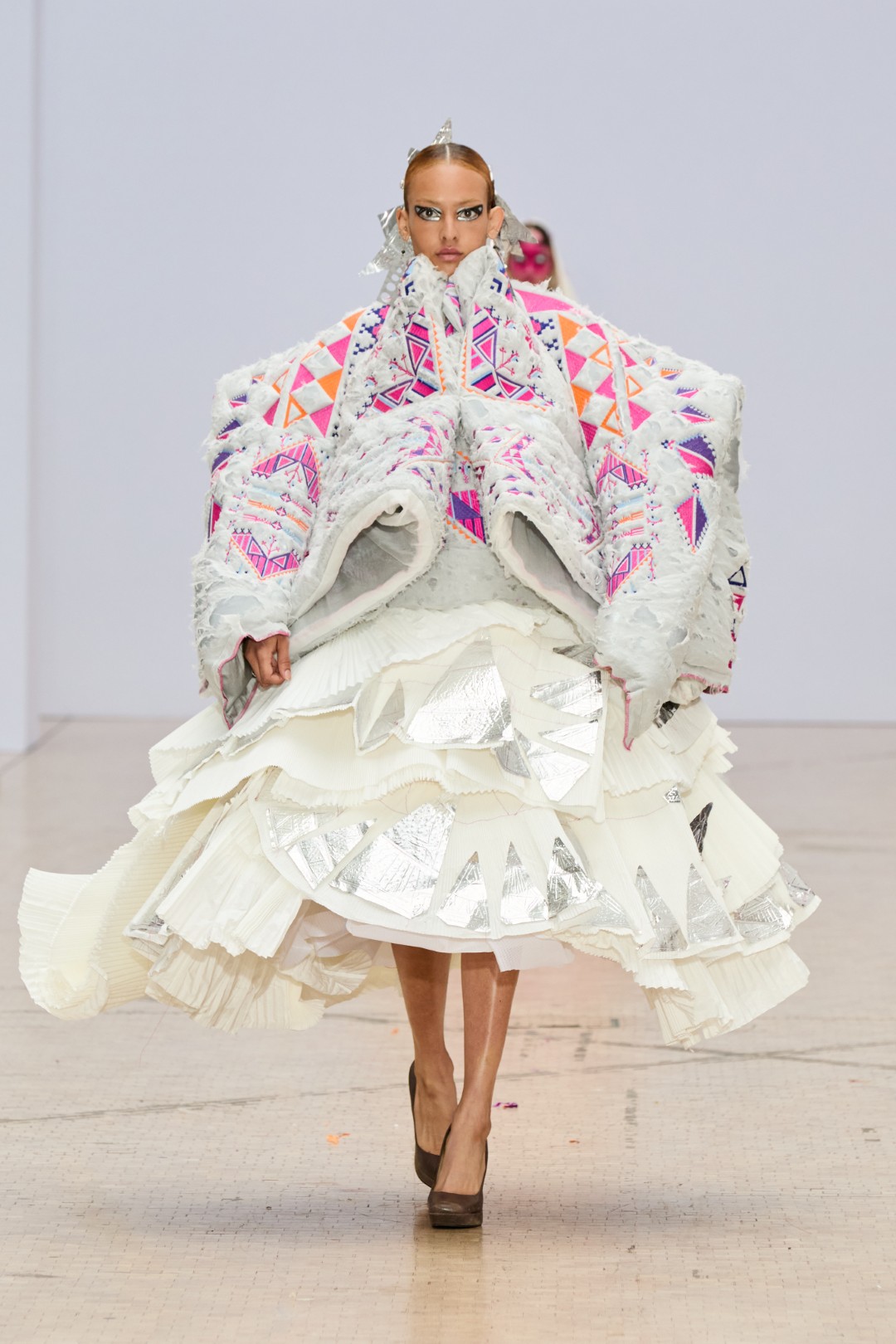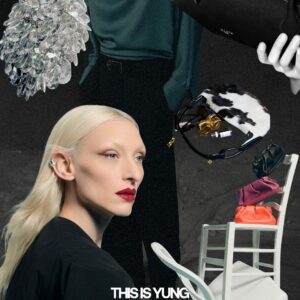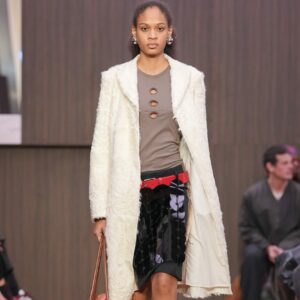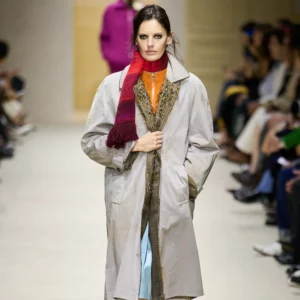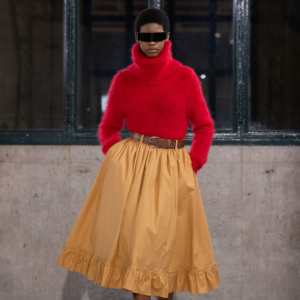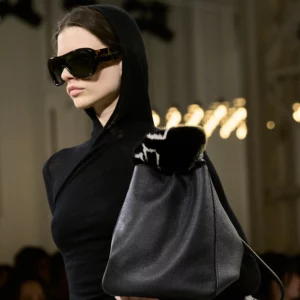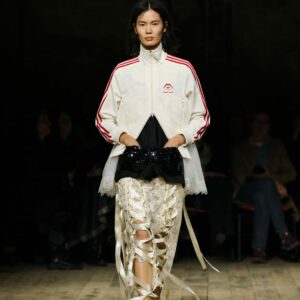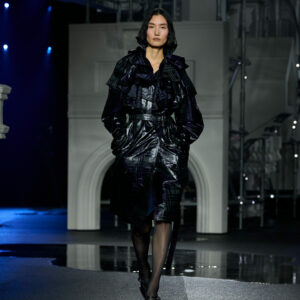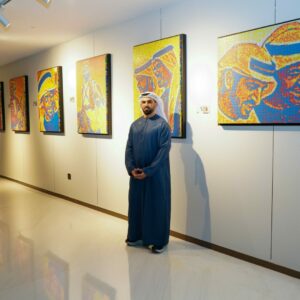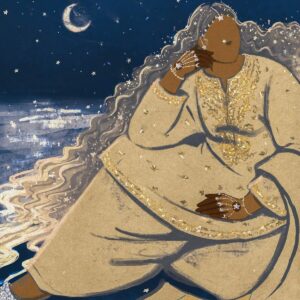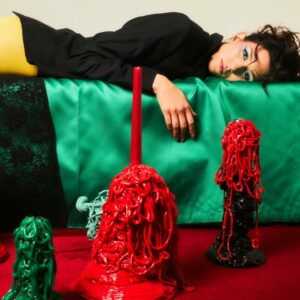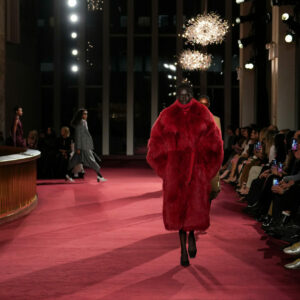When Palestinian designer Ayham Hassan (Instagram) arrived in London from Ramallah to study at Central Saint Martins, it was with the weight of history on his shoulders—and a future he refused to compromise. Crowdfunded and fuelled by community support, his journey from the West Bank to one of the world’s most prestigious fashion schools was both a personal leap and a political act. With a design philosophy rooted in preservation and protest, his graduate collection Immortal Magenta – The color that does exist, asserts fashion as a means of cultural survival and resistance.
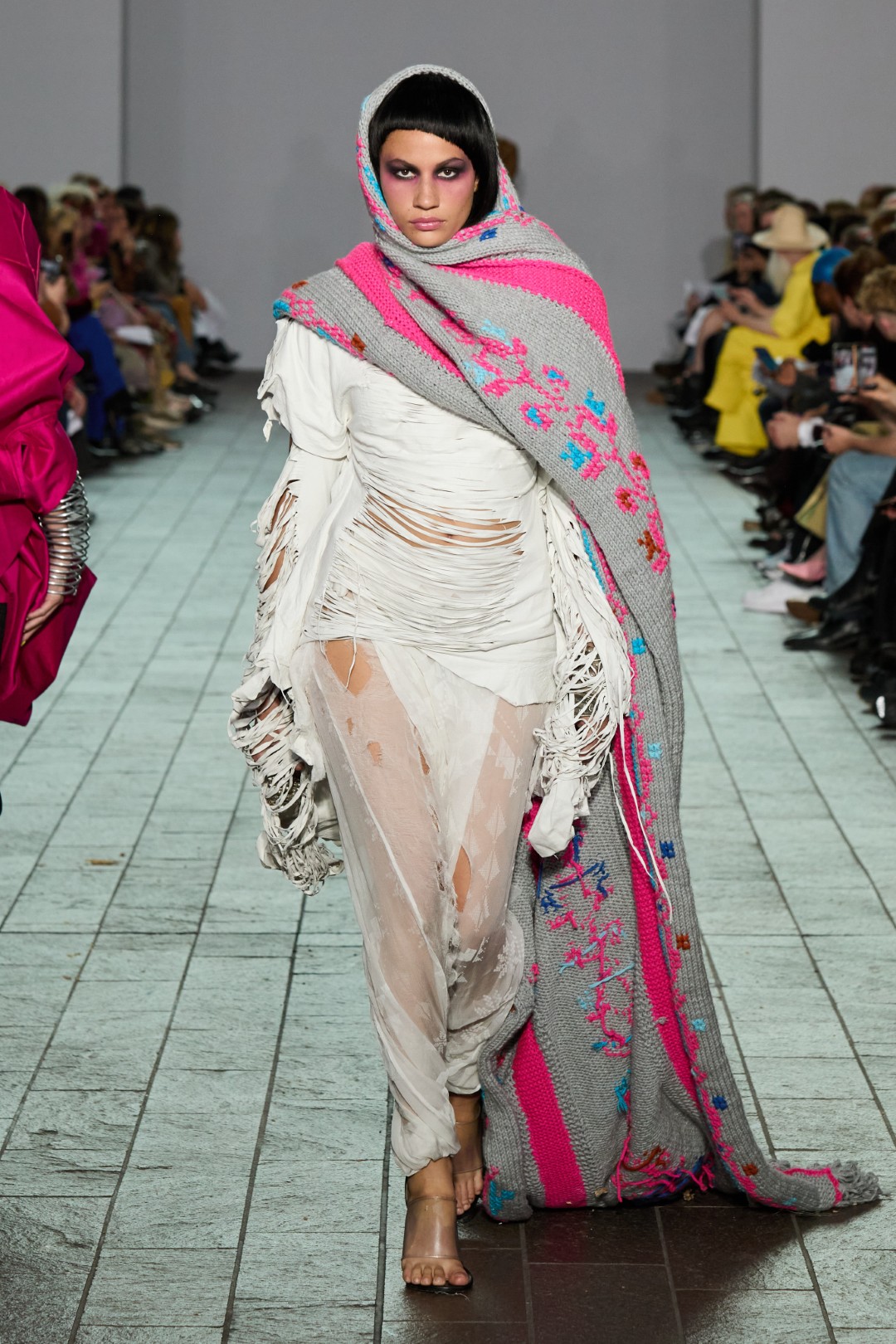
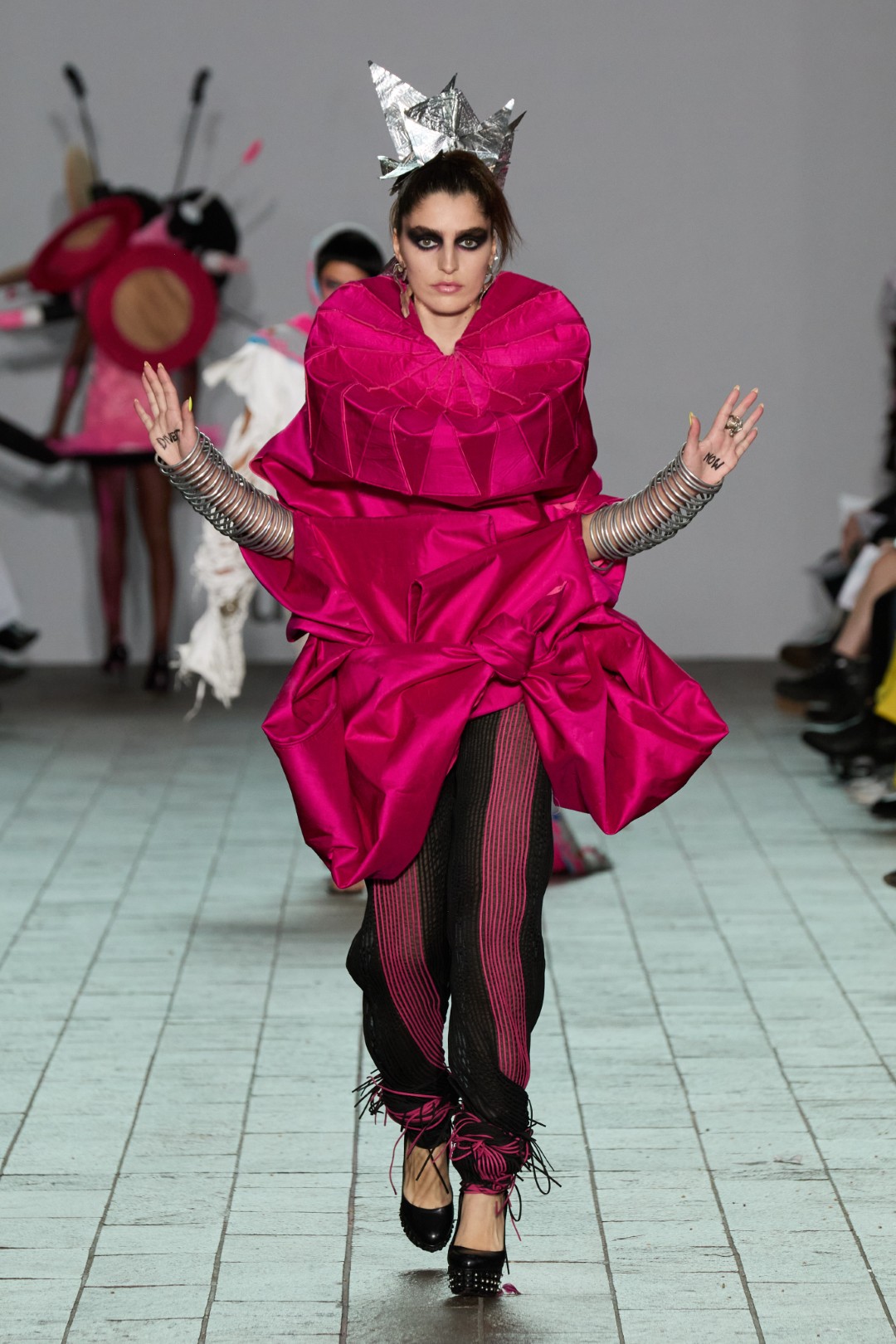
Hassan’s work is deeply informed by his upbringing under Israeli military occupation, and by the contradictions of daily life in the West Bank, where ancestral pride and ongoing dispossession coexist in uneasy proximity. Fashion, for him, is not just aesthetic: it is armour, memory, and archive. His design language draws from historic Palestinian textile traditions, particularly those of Gaza, and uses craft as a tool for narrative reclamation. Immortal Magenta expresses both self-determination and emotional intensity, a collection born from raw experience and shaped by meticulous research and collaboration.
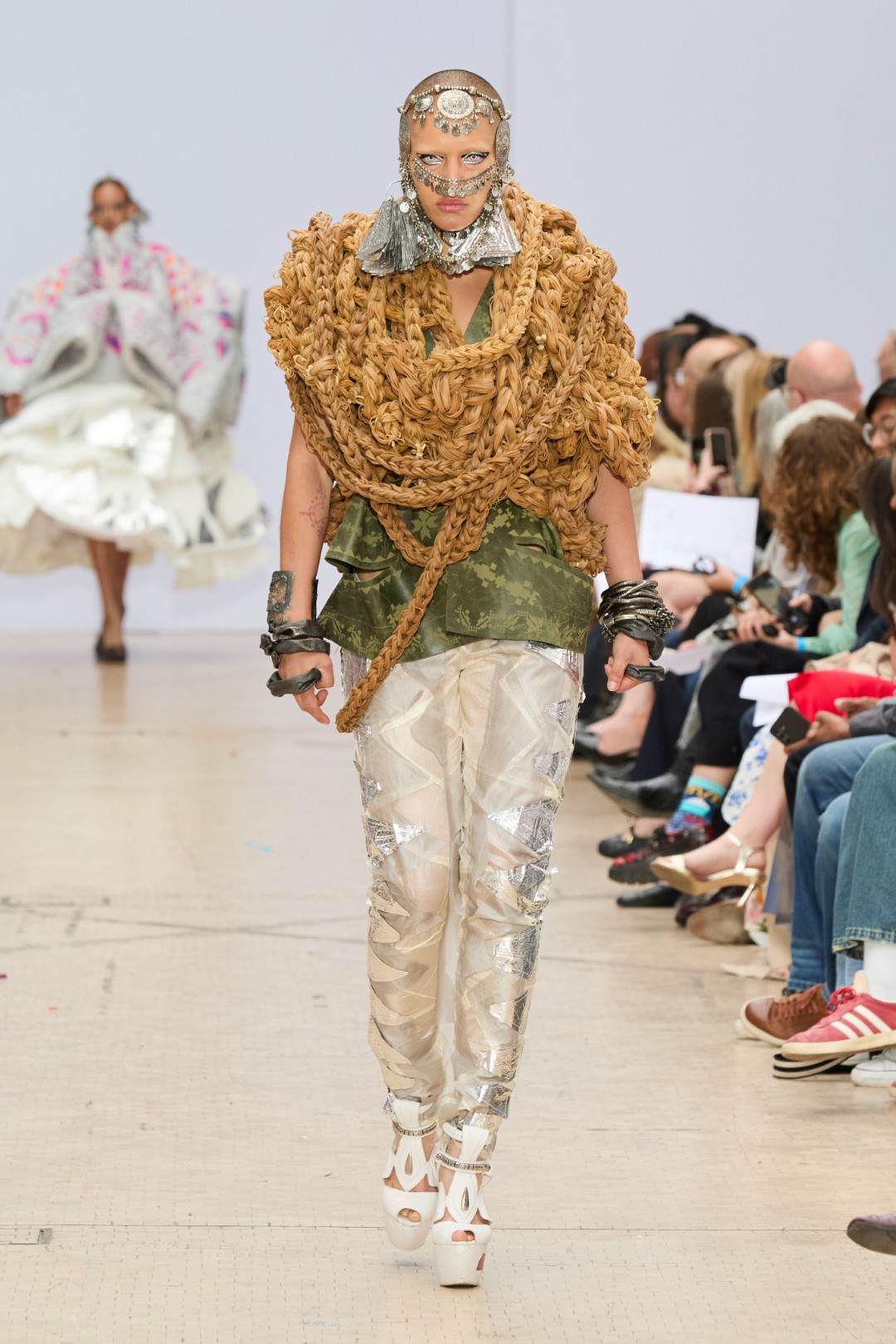
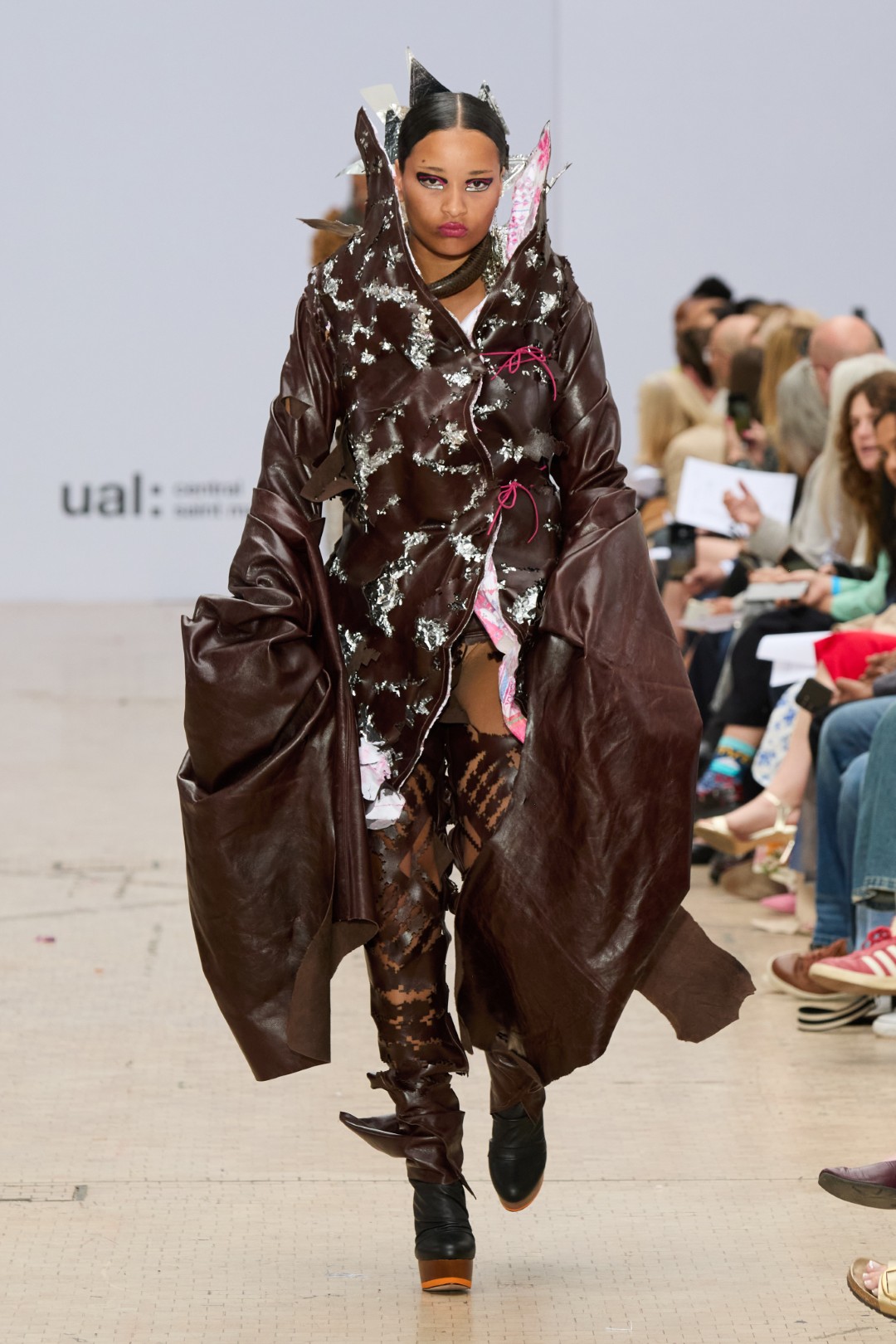
The collection’s title colour, a vibrant magenta that Ayham Hassan describes as “the colour that doesn’t exist,” sets the tone for a body of work that plays with absence and presence, rupture and continuity. He blends deadstock silks with end-of-stock leather, integrating rubber bands, pleated paper, tulle, and locally sourced Palestinian wool. Each garment serves as a meditation on violence and survival, adorned with hand embroidery, laser engraving, and motifs that feature elements of spiritual protection, particularly the triangle, a recurring form known across the MENA region for its power to ward off evil. “It’s about joy, not revenge,” he insists. “It’s about fierce women, ancestral technique, and the pride of those forced to endure.”
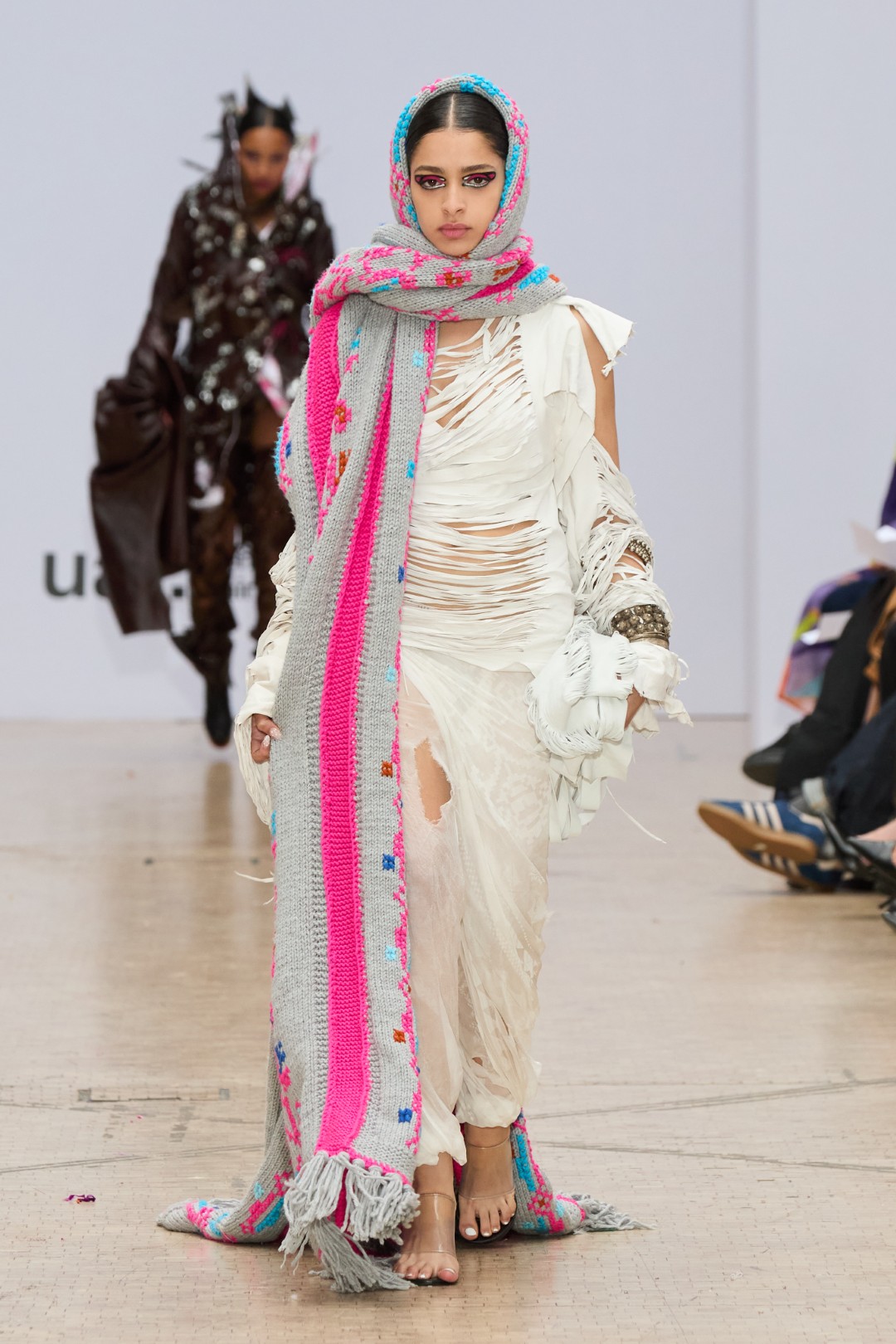
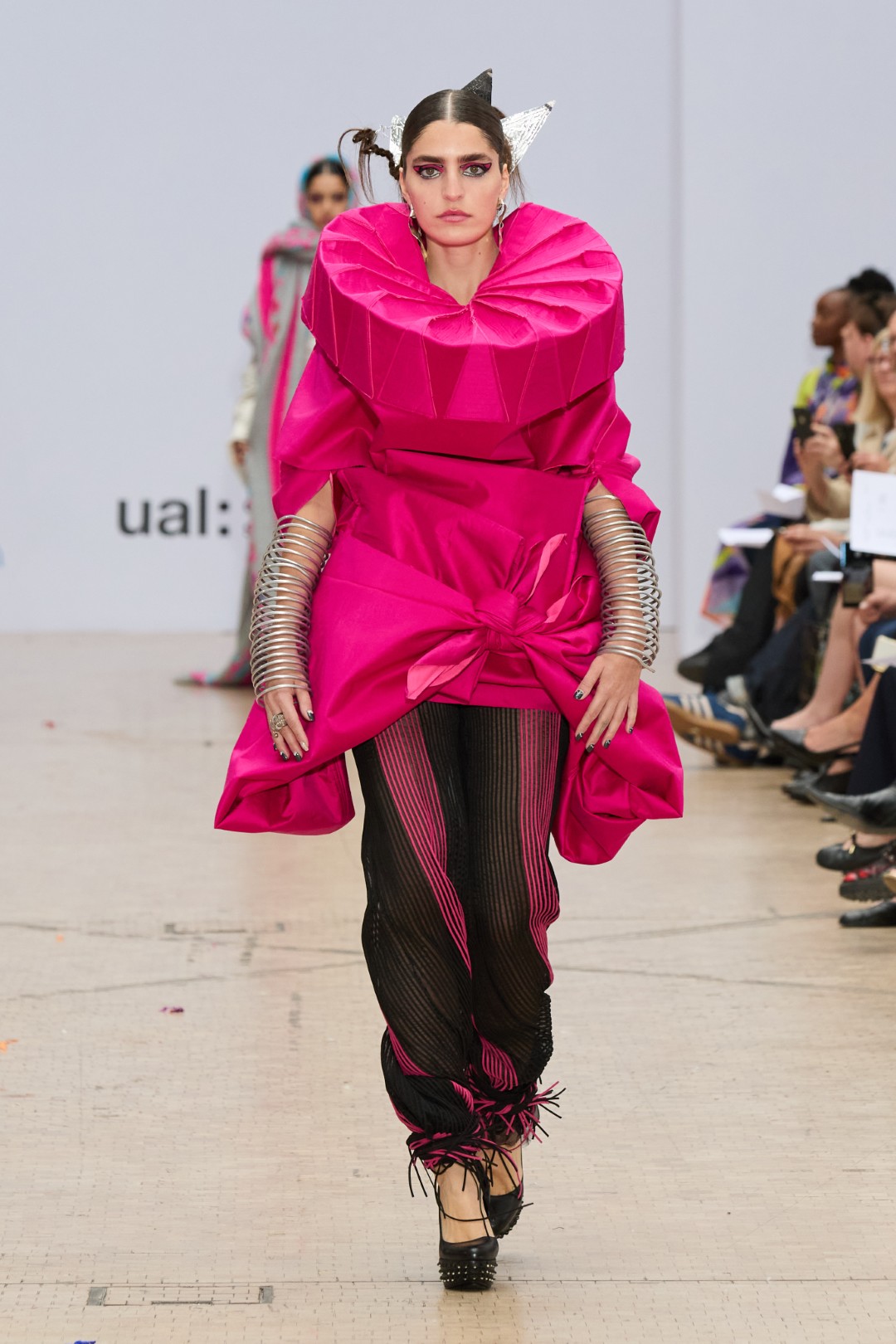
Hassan worked closely with eight artisans across Palestine to realize this vision, a process that came with its own challenges. In a context where access to materials and reliable infrastructure is tenuous, these craftspeople, many of them freelancers supporting entire families, offered not just skill but creative lifelines. The garments were produced through a hybrid process of delegation and personal labour: “I was afraid pieces wouldn’t arrive on time,” he says. “I had to compromise and adapt, often doing things myself.” This tension between precision and improvisation only deepened the integrity of the work.
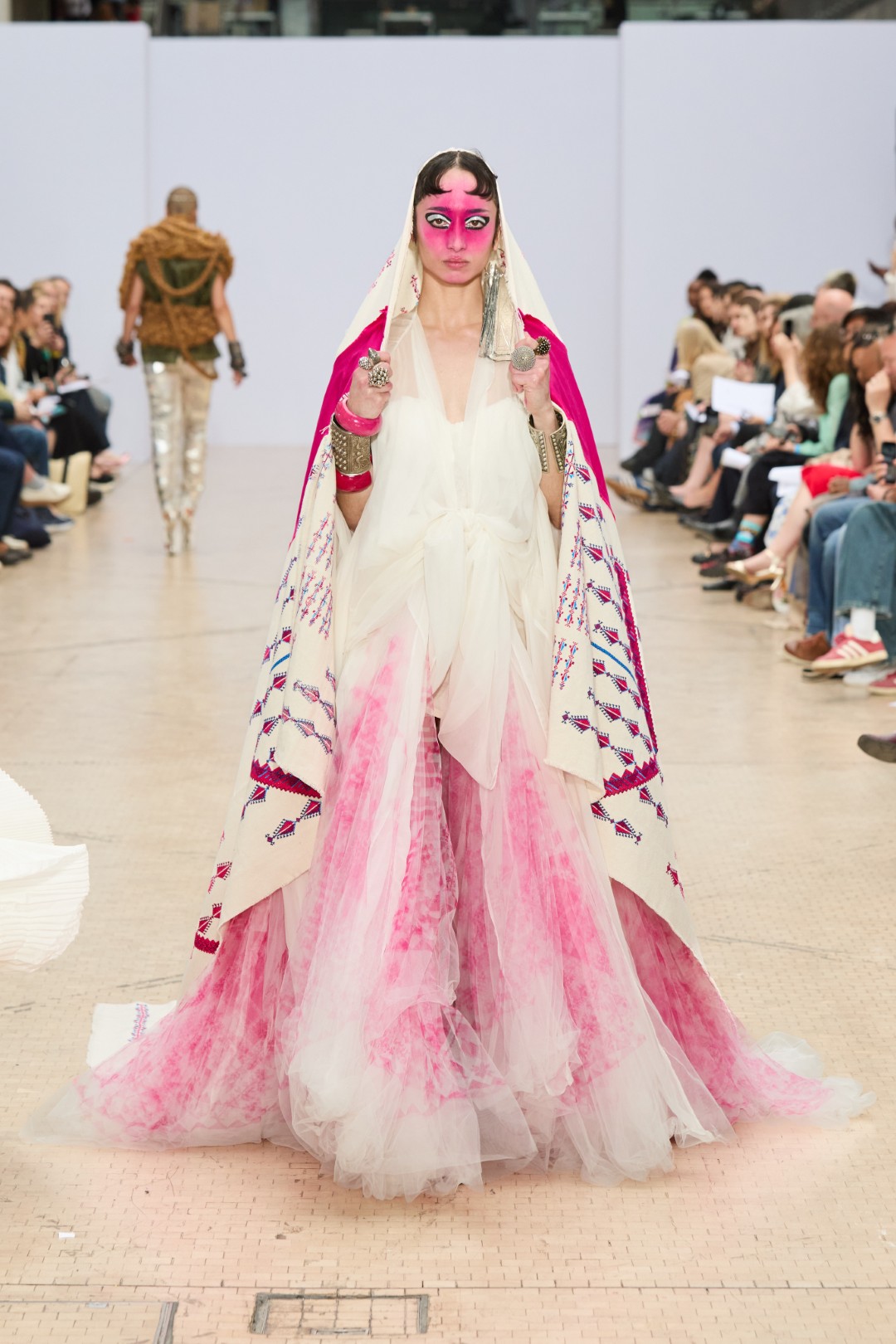
One piece stands out as especially personal: a headscarf hand-knitted by Hassan’s mother, who was unable to travel to London. Sent it across borders via a relay of friends and family, the scarf is made from Palestinian wool, wrapped with care, energy, and love. “It’s the most important piece,” Hassan reflects. It is both an offering and a protest, against disconnection, erasure, and the impossibility of reunion in a divided homeland.
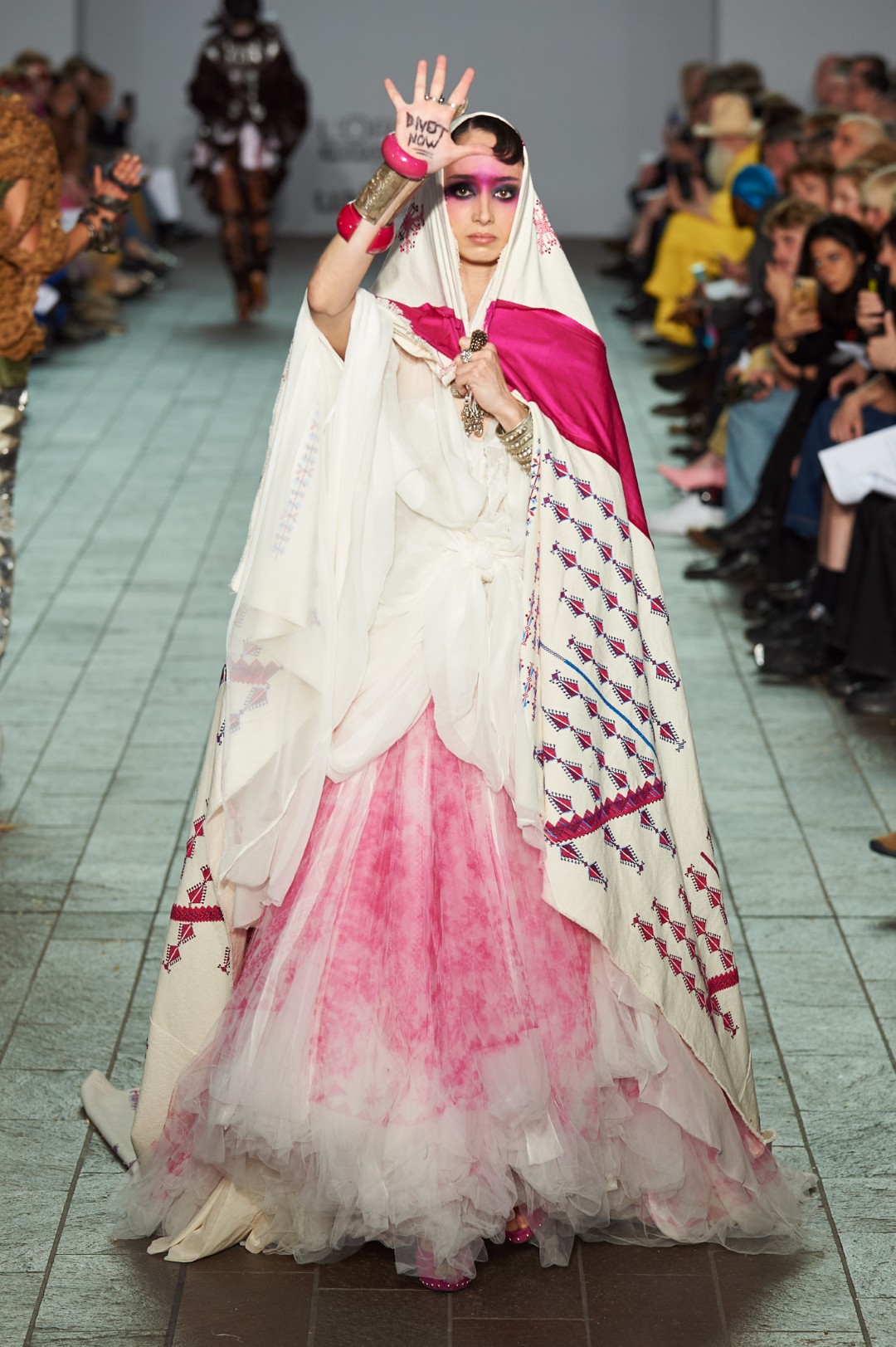
While the silhouettes channel couture, embellished and refined, they are rooted in daily life and resilience. Ayham Hassan’s work incorporates symbolism from the destroyed village of Abu Shusha, inherited oral histories from women in his community, and the bold embroidery of the early 20th century. These aren’t museum pieces; they’re declarations of existence. “Fashion,” he says, “is how I process displacement. It’s how I heal.”
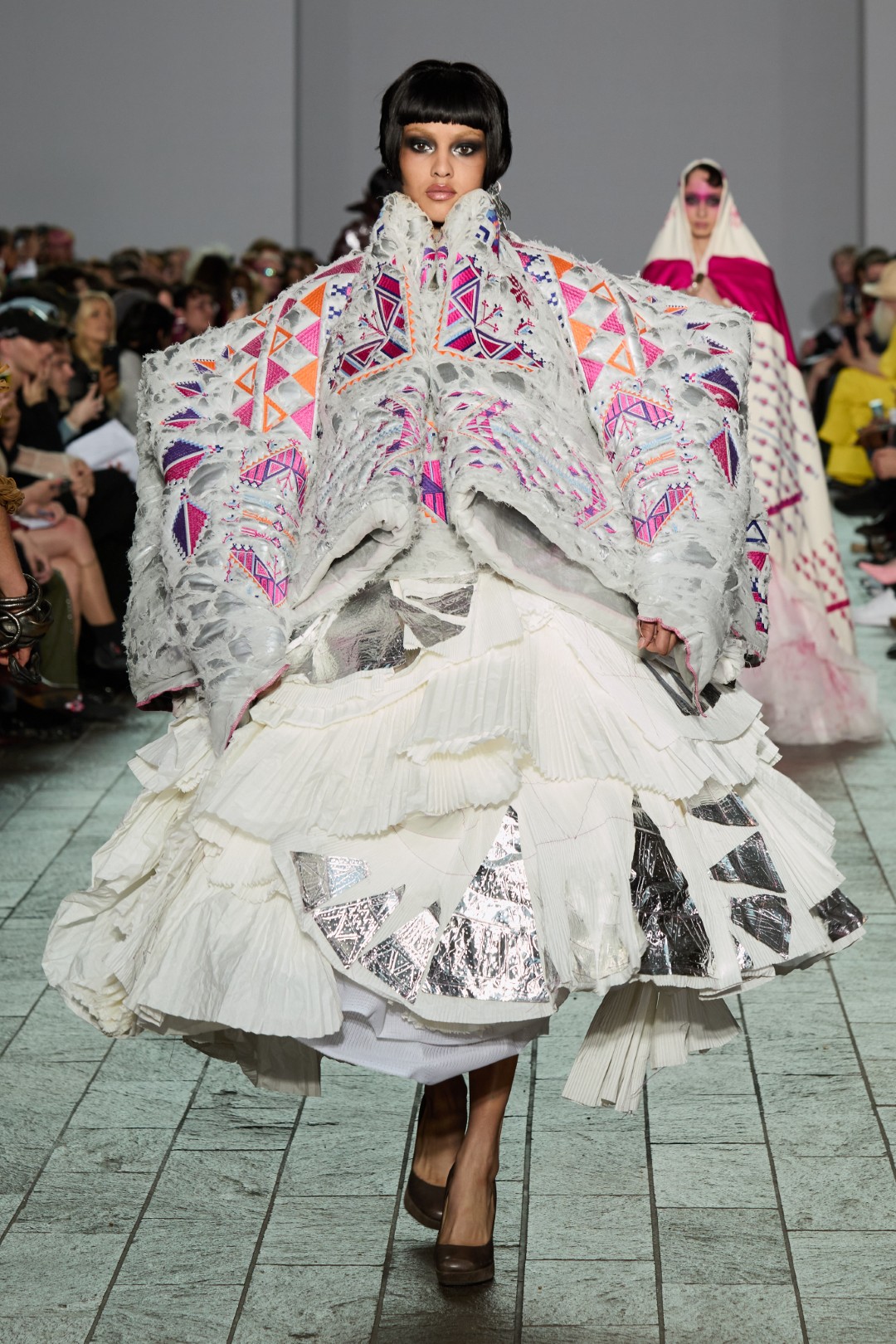
The collection debuted at a time when global attention was fixated on Gaza. Outside the Central Saint Martins show, student-led protests gathered in solidarity with Palestine. “It was overwhelming,” Hassan remembers. “But it made sense, my collection was already in protest mode.” Rather than leaning into spectacle, his work urges audiences to look deeper. To understand the fabric of trauma and joy, woven into every stitch.
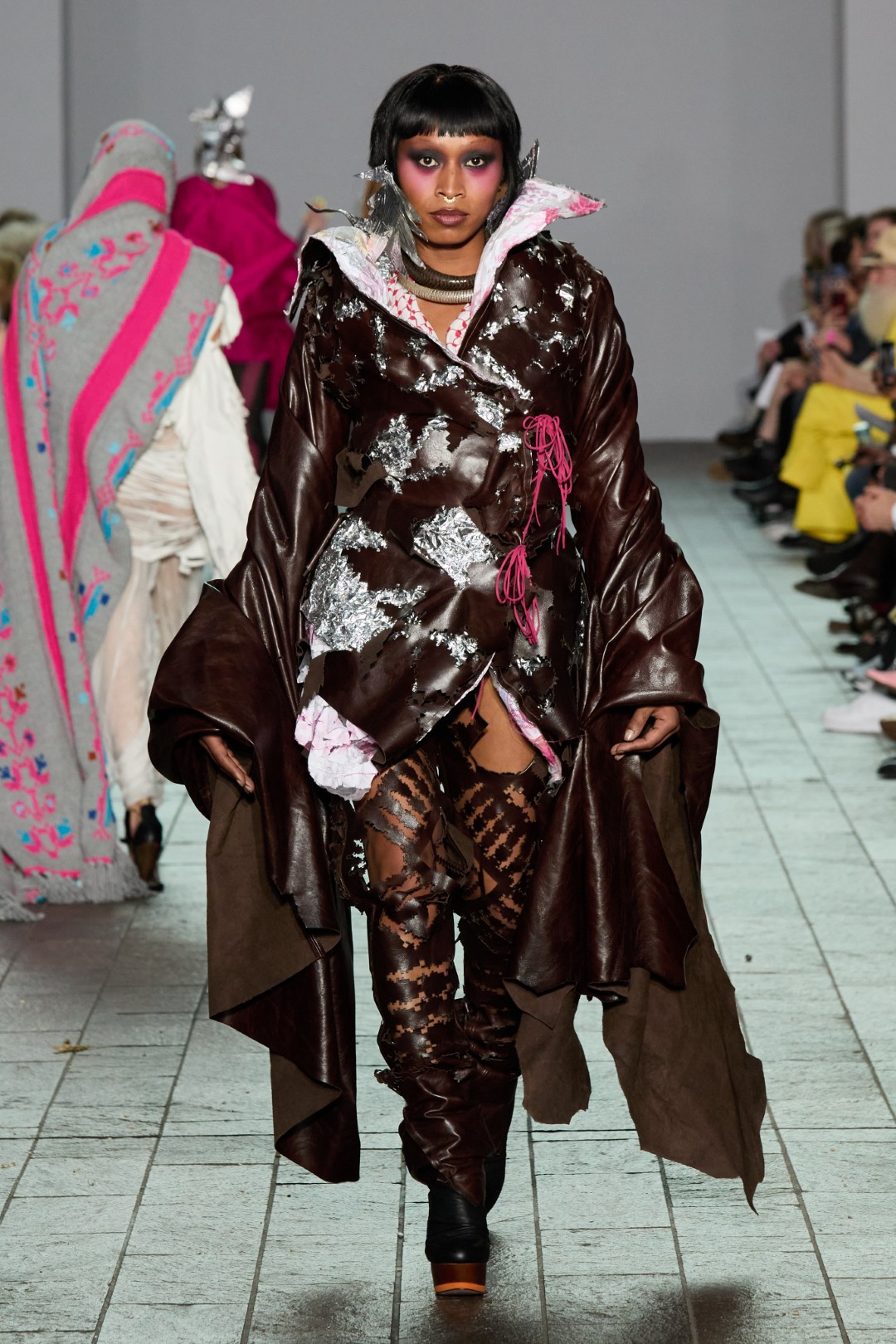
In terms of future plans, Hassan sees his practice as one that moves between worlds. He is committed to building a production ecosystem that supports Palestinian artisans, uplifts local talent, and speaks back to a fashion system that too often ignores non-Western narratives. His goal is to challenge the industry’s environmental and political blind spots, using his platform to foster meaningful dialogue and deliver design with purpose.
“I am not casting off a garment,” he writes in his collection statement, quoting Khalil Gibran. “I am tearing skin.” That visceral honesty defines Ayham Hassan’s vision, a future where fashion is not just worn, but lived, fought for, and fiercely protected.
For more stories of regional and international fashion, like this on Ayham Hassan, visit our dedicated archives.
